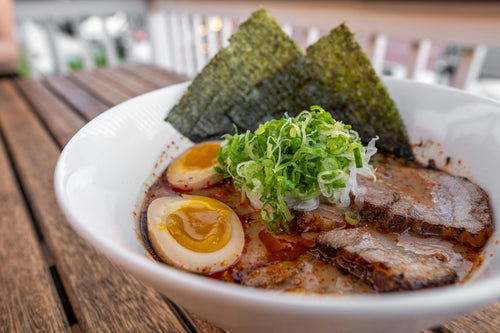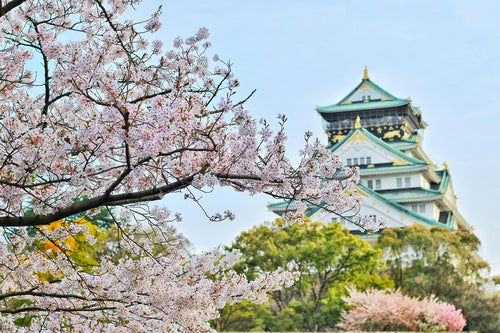
Ultimate Guide to Planning and Preparing for Your Japan Trip
Planning a trip to Japan can be both thrilling and challenging. From figuring out transportation and accommodations to knowing the best times to visit, there are a lot of details to consider. This guide covers everything you need to know for a smooth and enjoyable journey, helping you navigate the essentials of Japan travel from planning stages to must-have travel tips.
Contents
1. Choosing the Best Time to Visit Japan
2. Visa Requirements and Travel Documentation
3. Budgeting and Currency Exchange
4. Navigating Japan’s Transportation System
6. Packing Essentials for Japan
1. Choosing the Best Time to Visit Japan
Japan is a year-round destination, with each season offering unique experiences. Spring (March to May) is popular for cherry blossoms, while autumn (September to November) features stunning fall foliage. Summer brings festivals and vibrant greenery, although it can be hot and humid. Winter offers a quieter experience and is ideal for skiing in regions like Hokkaido. Choose a season based on your interests, whether it’s nature, festivals, or winter sports.
2. Visa Requirements and Travel Documentation
Japan has visa-free entry for many nationalities for short-term visits, typically up to 90 days. However, it’s essential to check the latest requirements, as they may vary by country. Ensure your passport is valid for the duration of your stay, and keep a copy of your itinerary and accommodation bookings handy for immigration. For longer stays or specific purposes, consider applying for a tourist or work visa as required.
3. Budgeting and Currency Exchange
Japan can be as affordable or luxurious as you make it. Plan your budget according to factors such as accommodations, dining preferences, and sightseeing activities. The Japanese yen (JPY) is the official currency, and it’s easy to exchange money at airports, banks, and ATMs in Japan. Be prepared with cash, especially for rural areas where card payments may be less common.
4. Navigating Japan’s Transportation System
Japan’s transportation network is one of the most efficient in the world. The Japan Rail Pass offers unlimited train travel on JR lines, ideal for multi-city trips. Public transit in cities like Tokyo and Osaka is extensive, with subway lines and buses providing easy access to attractions. Consider getting a prepaid IC card like Suica or Pasmo for convenient, cashless travel on public transit.
5. Choosing Accommodation
Japan offers a wide range of accommodations, from traditional ryokan inns to modern hotels and budget-friendly hostels. In larger cities, capsule hotels are a unique, affordable option. When booking a ryokan, you’ll experience Japanese hospitality and traditional amenities like tatami floors and futon bedding. For families, Airbnb and family-style hotels are great choices, offering larger spaces with amenities.
6. Packing Essentials for Japan
Packing for Japan depends on the season. Essentials include comfortable walking shoes, weather-appropriate clothing, and a reusable water bottle. Bring power adapters (Japan uses type A and B outlets) and a portable Wi-Fi device or SIM card for internet access. In cities, compact luggage is ideal for navigating crowded streets and public transit.
7. Understanding Japanese Cultural Etiquette
Respect and politeness are deeply valued in Japan. When entering homes and temples, remember to remove your shoes. Bowing is a common greeting, and it’s polite to bow slightly when meeting someone or thanking them. Avoid speaking loudly in public, and refrain from talking on your phone while on trains. Being mindful of these customs will enhance your experience and show respect to locals.
8. Language Tips and Useful Japanese Phrases
While many Japanese people understand basic English, especially in tourist areas, learning a few Japanese phrases can be helpful. Simple phrases like "arigatou" (thank you), "sumimasen" (excuse me), and "eigo ga hanasemasu ka?" (do you speak English?) can go a long way. Use language translation apps or carry a pocket guide to ease communication during your trip.
Preparing for a trip to Japan involves understanding cultural nuances, organizing essential travel documents, and knowing what to expect regarding transportation and accommodations. This guide provides a comprehensive overview of the steps needed to make your Japan trip a memorable and hassle-free experience. From sightseeing to immersing yourself in local culture, Japan offers countless experiences to cherish!
分享
You may also like
-

東京 7 間屋頂酒吧,欣賞迷人景觀
東京的屋頂酒吧提供了一些最佳方式,讓您可以一邊欣賞城市天際線,一邊享用飲料、享受氛圍,並常常欣賞令人難忘的日落美景。從俯瞰繁華新宿區的豪華飯店酒廊到可欣賞東京鐵塔美景的休閒露台,這些酒吧可滿足各種品味和預算。以下是東京七家最佳屋頂酒吧...
-

日本哪裡可以體驗拉麵製作課程
拉麵是日本最受歡迎的菜餚之一,具有無數的地域風格和風味,吸引來自世界各地的美食愛好者。從福岡濃鬱的奶油豬骨到北海道清淡鹹味的鹽味,拉麵的種類繁多。在日本體驗一碗拉麵本身就是一種享受,但學習自己製作拉麵可以讓您更深入地欣賞這道標誌性菜餚...
-

東京七大賞櫻地點
東京的春天是櫻花季的代名詞,這是一個令人驚嘆的時期,城市的公園、河邊和花園綻放出粉紅色和白色的色調。櫻花或「櫻花」在日本文化中佔有特殊的地位,象徵著生命的新生和短暫的本質。無論您是當地人還是遊客,東京都有許多風景名勝,您可以在那裡體驗...
-

東京十大值得參觀的博物館
東京擁有各種各樣的博物館,可以滿足從藝術和歷史到技術和流行文化的各種興趣。無論您是有興趣探索日本傳統藝術還是體驗最新的數位創新,東京的博物館都能提供吸引各個年齡層遊客的身臨其境的體驗。每個博物館都提供了對日本文化和全球藝術場景不同方面...




